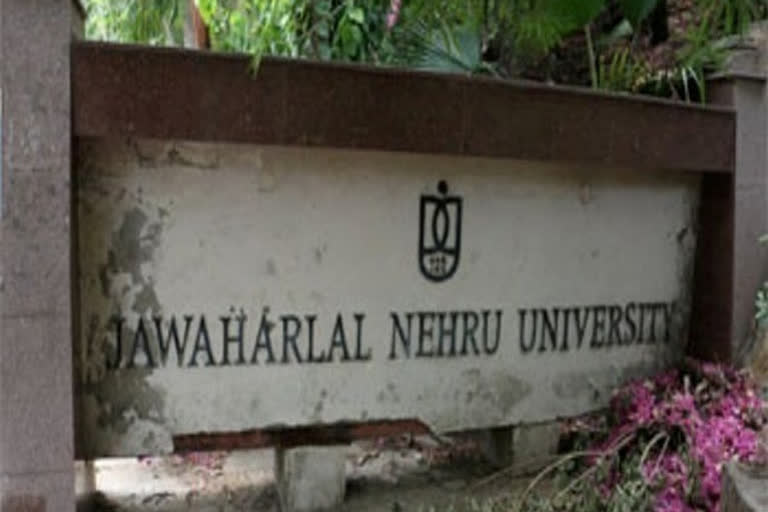Hyderabad: The ongoing agitations on the Jawaharlal Nehru University campus in New Delhi, the nation’s capital, is symptomatic of growing youth unrest in the country against the undemocratic tendencies of the Union government as well as a reflection of the angst and insecurity amongst the country’s educated and politically conscious youth.
More so, it would be incorrect to see these protests as a one-off and limited to a privileged and ‘elite’ New Delhi-based University.
The turmoil in JNU must be read with the youth unrest in the rest of the country against the recently-legislated Citizenship (Amendment) Act 2019 and the proposed National Register of Citizens.
For more than a month now, the anti-CAA/NRC protests have grown, from first in Assam and the North East and to the rest of the country.
While this is perhaps the harbinger of a new politics in the country, it is also not without its political implications.
The JNU crisis
JNU students have been protesting since late October last year against the hike in hostel fee, especially after the university authorities announced that the service charges for maintenance, mess workers, cook and sanitation and utility charges for power and water consumption would have to be paid for by the students.
Thanks to the student protests, which I personally consider justified, the academic work of the semester remained incomplete nor were the exams held on time.
Close to 70 per cent of the students have also not registered themselves for the new semester which was due to start earlier this month.
On top of all this, on Sunday night masked men wielding sticks, rods and sledgehammers entered hostels and attacked students and teachers, leaving several injured.
More so, despite eyewitness accounts and photographic evidence, none of the 70 odd attackers has been identified or arrested by the Delhi police which reports directly to the Union Home Ministry. The country was outraged.
The politics of the JNU crisis
JNU has always been considered as it’s bête noire by the Indian rightwing thanks to the former’s ideological moorings and consistent anti-establishment opinions.
The earlier establishments, led by the Congress party or even the coalition governments, despite the criticism they faced from JNU’s vibrant intellectual community, preferred to coopt JNUites, or left them alone, than alienate them.
The Modi-government has adopted a drastically different policy, of taking on the faculty and students and caricaturing JNU as an anti-national university.
The JNU crisis is not entirely without its political utility for the BJP regime at the centre.
Reeling under the heat of a massive economic slowdown, skyrocketing unemployment rates and successive defeats in state elections, JNU provides a useful distraction for the government from the more pressing issues facing the nation today.
When JNU is painted by those in the government as a den of people who want to destroy the unity and integrity of the country, and accusations are made, with help from a pliant mainstream media that JNUites are actively seeking to break up the country, everything else appears to be less significant for the common masses.
Needless to mention that these accusations are made with little evidence that would stand up to judicial scrutiny.
Some economists have argued that India today has the "worst economy in 42 years", and the World Bank has pegged India’s growth for FY20 at 5%.
To that extent, JNU is the right wing’s chosen weapon of ‘mass distraction’. For the rightwing, given this alarming context, JNU provides the battle cry against the imagined enemies who are trying to break India from within.
CAA + NRC + protests: a potent combo
Despite its ability to carefully manage the politics of nationalism and calibrate its pushback against its ideological opponents, the BJP may be finding itself in a weak spot with the general public pushing back against the CAA and the NRC in various parts of the country, led primarily by the country’s young population.
This perhaps explains why the Home Minister and the Prime Minister seemed to take two different lines on a nation-wide NRC, and have gone silent about it now.
The BJP’s ability to appeal to the politically neutral segments of the population may have taken a hit, its appeal to the middle class as a harbinger of fast economic growth may also have weakened considerably.
To that extent, even though the JNU bogey provides a certain respite to the BJP from its current troubles, if the combined fury from the many agitations continue to sustain for long enough, it might start causing troubles for the BJP higherups.
The BJP’s biggest weapon in its political arsenal is its ability to polarize, but if the popular opposition to its policies continues to be non-polarized, BJP might consider peddling down its controversial policies.
In the immediate term, the polarization surrounding the NRC/CAA debate would be used by the Modi government to seek votes in the upcoming elections.
That is perhaps one reason the Aam Aadmi Party, BJP principal compactor in the Delhi assembly election, has been very cautious and circumspect in how it engaged the debate on NRC/CAA. However, the longer the unrest persists and widens its base, this could become a major headache for the BJP.



